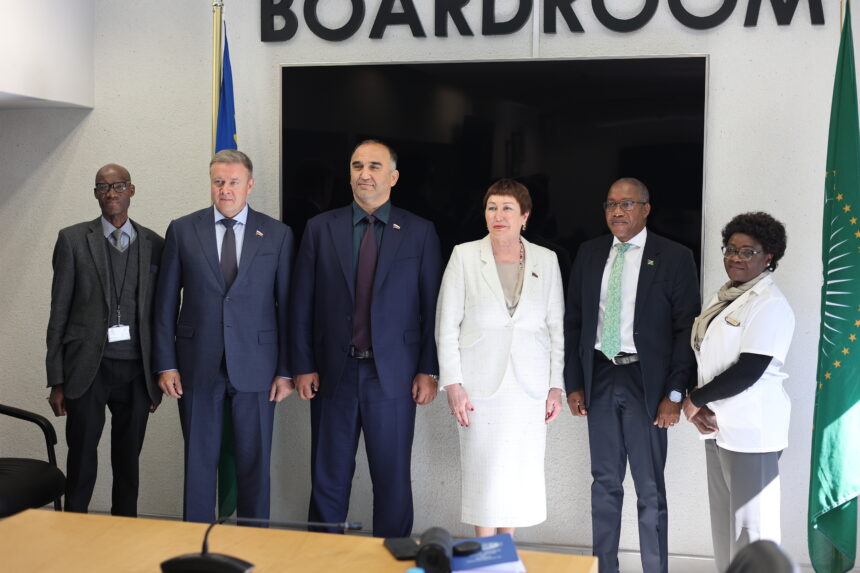Sakeus Iikela
The Russian government has expressed openness to increasing the scholarship quota for Namibian students, particularly in the field of medicine, to further strengthen the relationship between the two countries.
This announcement was made by Senator Yelena Perminova, the chairperson of the committee on social policy and head of the friendship group for cooperation from the Federation Council of the Federal Assembly of the Russian Federation, during her meeting with Namibian authorities in Windhoek last Thursday.
During the meeting, Perminova shared her vision for the future of bilateral relations between Russia and Namibia, emphasising the importance of enhancing cooperation in key areas such as education, health and social
welfare.
A key highlight was Russia’s intention to increase the number of Namibian students studying in Russian universities by expanding the scholarship quota.
Perminova and her delegation also met Ben Nangombe, the executive director of health, who underscored the robust cooperation between Namibia and Russia in the health sector. Nangombe highlighted that ongoing high-level government exchanges have facilitated partnerships focusing on critical healthcare areas.
“Our countries continue to exchange visits at the highest level. The agreements we have signed so far entail organising and managing the public healthcare system; training and advanced retraining of healthcare professionals; prevention and combating of communicable diseases; promotion of a healthy lifestyle, and prevention of non-communicable diseases; maternal and child health; implementation of digital technologies throughout the public health sector; and state regulation of the circulation of medicines and medical devices,” he said.
He also noted the positive impact of Russia’s health professionals working in Namibia’s public and private health sectors, stating that their efforts “help to enrich public healthcare in Namibia.”
Perminova acknowledged Namibia’s needs in the cardiology sector and expressed Russia’s willingness to assist.
“We understand that you need
help in the cardiology sector. We will meet the minister of health and share your story with them to see how they can help Namibia improve its cardiology department,” she said.
She added: “We know the interaction between our ministries of health has intensified and that you have some arrangements to work jointly with our ministry of health. This demonstrates a positive attitude towards enhancing our bilateral cooperation, and achieving practical results here in Namibia. Such cooperation, will benefit both our countries, and I wish you further success.”
*Sakeus Iikela is a researcher at the National Council.


